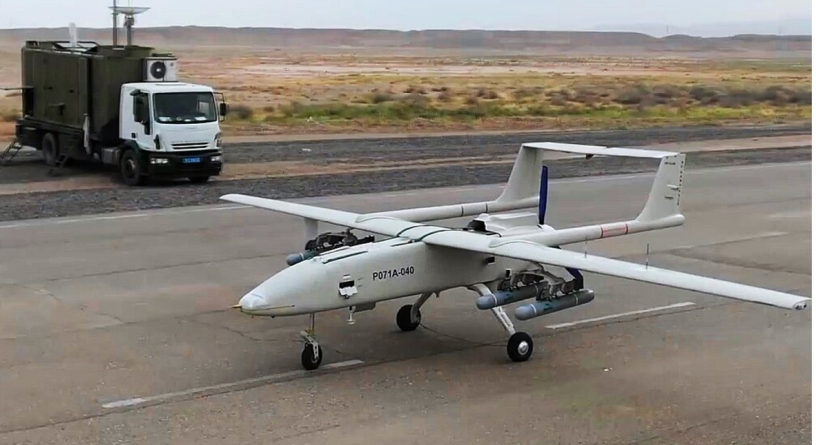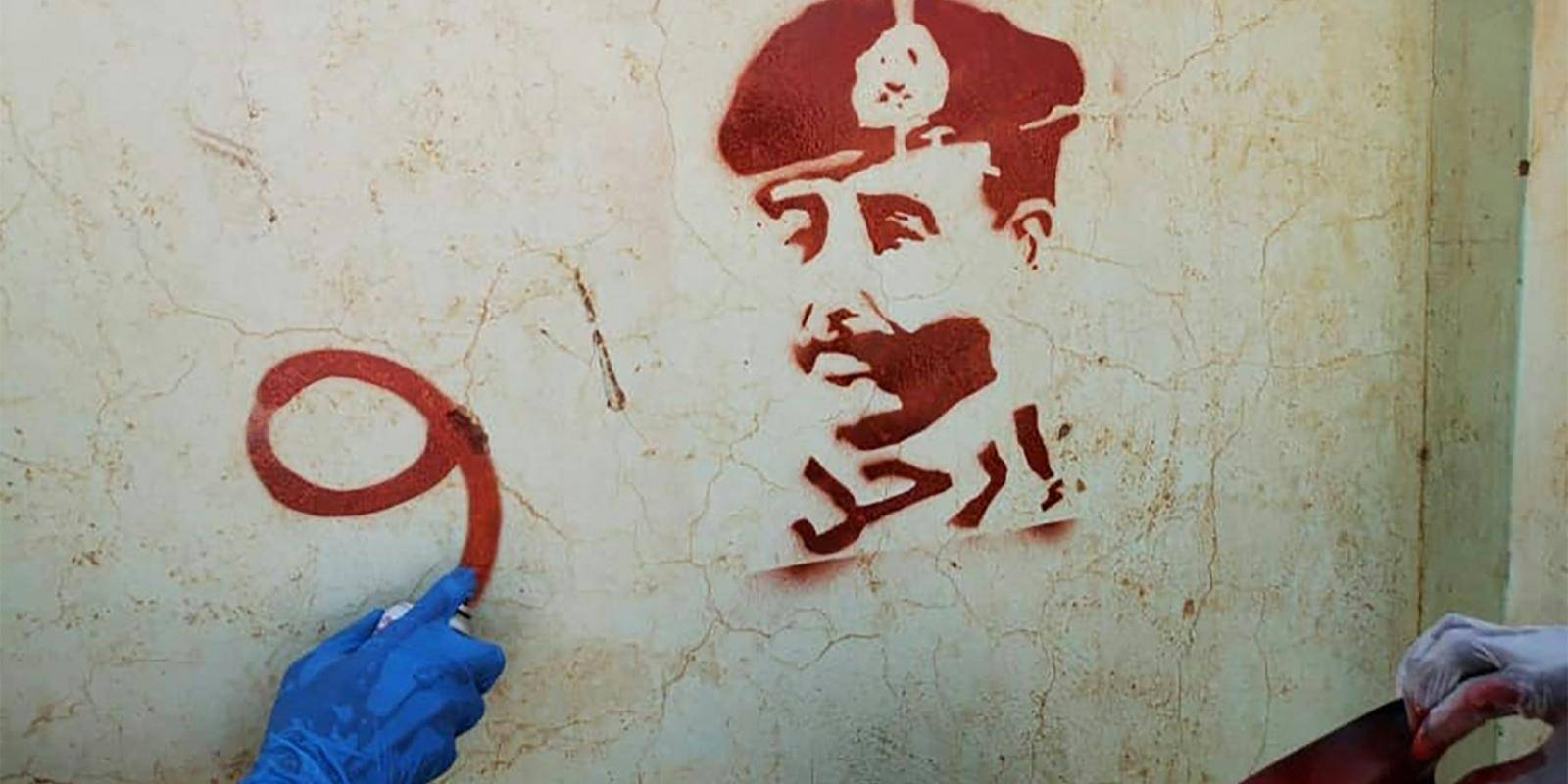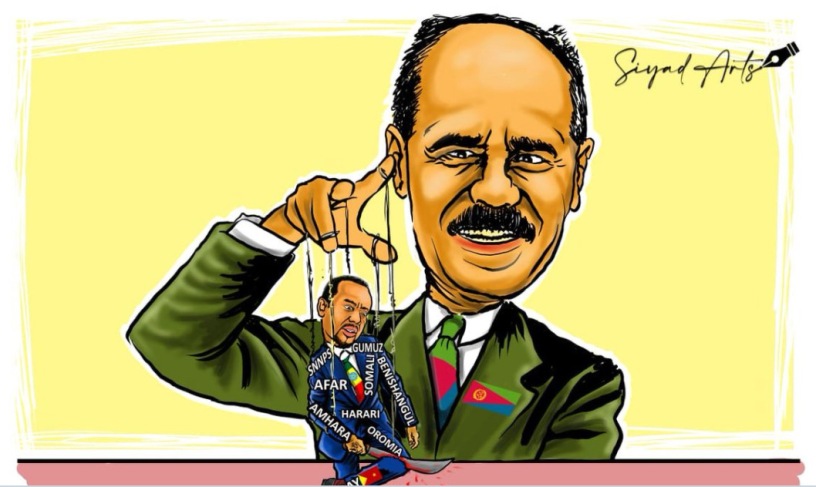AFRICA, ERITREA, HORN OF AFRICA

Two reports on rape in Tigray are published today. One is by Amnesty International alleging rape by Tigrayan forces. The other, by Human Rights Watch, accuses all parties to the war of using rape but goes on to allege that the Ethiopian government is blocking aid to Tigray rape victims.
Both are carried in full below.
The allegations that Tigray Defence Forces raped Amhara women are very serious indeed. They need investigation.
But when contacted the Amnesty researcher was asked why the Tigray government (called the TPLF by Amnesty) had not been asked for their response, the researcher replied that he did not have their phone number.
It is a number any Nairobi journalist worth his or her salt could have provided.
Martin
Ethiopia: Blocking Tigray Aid Harms Rape Survivors
Source: Human Rights Watch
Urgently Allow Entry of Food, Medicine; Support International Investigations
- · The Ethiopian government’s blocking of aid with health facilities in Ethiopia’s northern Tigray region destroyed is preventing sexual violence survivors from getting post-rape care.
- · The government’s effective siege of Tigray since June is doubly victimizing survivors by denying them critical medical and psychosocial – mental health – support.
- · The African Union, the UN, and international donors should support an international inquiry and press all parties to the Tigray conflict to halt abuses and allow rapid and unimpeded aid access.
- ·
(New York) – The Ethiopian government’s blocking of aid and essential services, with health facilities in Ethiopia’s northern Tigray region destroyed, is preventing survivors of sexual violence from obtaining essential post-rape care, Human Rights Watch said in a report released today.

November 9, 2021
Access to Services for Survivors of Gender-Based Violence in Ethiopia’s Tigray Region
The 89-page report, “‘I Always Remember That Day’: Access to Services for Gender-Based Violence Survivors in Ethiopia’s Tigray Region,” documents the serious health impact, trauma, and stigma experienced by rape survivors ages 6 to 80 since the beginning of the armed conflict in Tigray in November 2020. Human Rights Watch highlighted the human cost of the Ethiopian government’s effective siege of the region, which has prevented an adequate and sustained response to survivors’ needs and the rehabilitation of the region’s shattered healthcare system.
“Warring parties in the first nine months of Tigray’s conflict committed widespread sexual violence while deliberately targeting healthcare facilities, leaving survivors and their communities reeling,” said Nisha Varia, women’s rights advocacy director at Human Rights Watch. “The government’s effective siege of Tigray since June is doubly victimizing survivors by denying them critical medical and psychosocial – mental health – support.”
The African Union, the United Nations, and international donors should press the Ethiopian government and all parties to the Tigray conflict, including the Tigray People’s Liberation Front (TPLF), to halt abuses, allow rapid and unimpeded access to aid throughout northern Ethiopia, and support international investigations into alleged abuses.
Human Rights Watch interviewed 28 health and aid workers, donors, and sexual violence survivors and witnesses. Human Rights Watch also reviewed 43 additional individual cases of sexual violence in Tigray, documented through anonymized medical and intake notes from service providers, and conducted telephone and written interviews with Tigray regional authorities. Human Rights Watch sent a summary of findings and requests for information to Ethiopian federal authorities, but did not receive replies.
The Tigray conflict has resulted in widespread reports of sexual violence in areas controlled by Ethiopian and Eritrean federal forces, and regional Amhara militias, including rape, gang rape, sexual slavery, and torture, often accompanied by killings of family members, beatings, and degrading, ethnic-based slurs. Tigrayan fighters have been implicated in rape, killings, and other abuses against Eritrean refugees in the region, and against Amhara civilians in the Amhara region.
Human Rights Watch found that the healthcare needs of sexual violence survivors have included termination of pregnancy, treatment for HIV and Hepatitis B, and care for broken bones, stab wounds, and traumatic fistula. Survivors also sought support for depression, anxiety, and post-traumatic stress.
“One day Ethiopian military men came to the hospital with a [teenage] girl,” said a doctor working in a hospital in an urban center. “We checked her and found that she was pregnant. She was one of the sex slaves in the Gereb Giba military camp [near Mekelle, the regional capital].”
The doctor said that she had hepatitis: “With her consent we terminated her pregnancy. Gave her anti-hepatitis drugs. After that quite a lot of women and girls were coming in, seeking medication, and to terminate their pregnancies, raped by conflict actors, mainly by Eritrean troops and Ethiopian forces.”
During the first nine months of the conflict, Ethiopian, Eritrean, and Amhara forces pillaged and destroyed health facilities in Tigray. This, along with the presence of soldiers at checkpoints on the roads and near or inside health facilities, prevented survivors, especially from outside urban areas, from getting treatment within the critical 72-hour window to prevent pregnancy and HIV. A humanitarian aid provider said that of the sexual violence cases handled by their agency, “more than 80 percent of victims and survivors didn’t present [themselves] within the 72-hour window.”
After Ethiopian authorities declared a unilateral ceasefire in late June, the government besieged the region, including blocking food, medicines, cash, and fuel, in violation of international humanitarian law, which has stymied the recovery of health services.
 A service provider supports a survivor of sexual violence in Tigray region, Ethiopia, February 27, 2021. © 2021 Eduardo Soteras/AFP via Getty Images
A service provider supports a survivor of sexual violence in Tigray region, Ethiopia, February 27, 2021. © 2021 Eduardo Soteras/AFP via Getty Images
Aid agencies have been unable to establish and scale-up a response that meets international standards, Human Rights Watch said. Any expanded response will need to fill the massive gaps including the need for community-level outreach and support, creation of “safe spaces” for women and girls, availability of clinical management of rape, mental health, and psychosocial support services, and access to specialized care. All services should be accessible and take into account the particular requirements and circumstances of people with disabilities, men, older people, and children. Healthcare providers, who have treated and worked with distressing cases with little support amid enormous challenges, should also receive mental health support.
The scale of sexual violence against women and girls in Tigray, ongoing abuses, and harm against survivors by federal government actions, as well as sexual violence by Tigrayan forces against Amhara civilians in the Amhara region, point to the need for the UN Human Rights Council to establish an independent investigation into conflict-related abuses, including the obstruction of aid, Human Rights Watch said.
“One year since Tigray’s devastating conflict began, survivors of sexual violence – from gang rape to sexual slavery – remain in desperate need of health care and support services,” Varia said. “Not only have Tigrayan women and girls experienced horrific abuses, they are confronting shortages of food, medicine, and other desperately needed support to rebuild their lives.”
AMNESTY INTERNATIONAL
PRESS RELEASE
Embargoed for release until 00:01 GMT (03:01 EAT) on 10 November 2021
Ethiopia: Survivors of TPLF attack in Amhara describe gang rape, looting and physical assaults
- · Women raped at gunpoint, robbed and assaulted
- · Lack of medical care after TPLF fighters damaged and looted hospital
- · Abuses committed as Tigray conflict has spilled over into Amhara region
Sixteen women from the town of Nifas Mewcha in Ethiopia’s Amhara region told Amnesty International they were raped by fighters from the Tigray People’s Liberation Front (TPLF) during the group’s attack on the town in mid-August 2021.
Survivors described being raped at gunpoint, robbed, and subjected to physical and verbal assaults by TPLF fighters, who also destroyed and looted medical facilities in the town. Fourteen of the 16 women Amnesty International interviewed said they were gang raped.
The TPLF took control of Nifas Mewcha, in Amhara’s Gaint District, for nine days between 12 and 21 August 2021, as part of an ongoing offensive into parts of the Amhara and Afar regions. Regional government officials told Amnesty International that more than 70 women reported to authorities that they were raped in Nifas Mewcha during this period.
“The testimonies we heard from survivors describe despicable acts by TPLF fighters that amount to war crimes, and potentially crimes against humanity. They defy morality or any iota of humanity,” said Agnès Callamard, Amnesty International’s Secretary General.
“TPLF fighters must immediately stop all human rights abuses and violations of international humanitarian law, including sexual and gender-based violence. The leadership must make clear that such abuses will not be tolerated and remove suspected perpetrators from their ranks.”
Gang rape and physical assaults
Amnesty International used secure video call applications to individually interview 16 survivors of sexual and gender-based violence in Nifas Mewcha.
The organization also interviewed the head of Nifas Mewcha hospital, as well as local and regional government officials with knowledge of the assault and its aftermath.
According to a local government desk officer for Women, Children and Youth Affairs, 71 women reported that they were raped by TPLF fighters during the period in question; the Federal Ministry of Justice puts the number at 73.
Survivors told Amnesty International that the attacks began as soon as the TPLF took control of the town on 12 August 2021. The women all identified the perpetrators as TPLF fighters based on their accents and the ethnic slurs they used against victims, as well as their overt announcements that they were TPLF.
Bemnet, a 45-year-old Nifas Mewcha resident, told Amnesty International that four TPLF fighters came to her house on the evening of 14 August and demanded she make them coffee, before three of them gang raped her. She said:
“I suspected their intentions, and I sent away my daughters to stay away from the house. [The soldiers] told me to bring them home. I told them they won’t come. Then they started to insult me. They were saying ‘Amhara is donkey’, ‘Amhara is useless’. One of them told the others to stop insulting me. He said, ‘she is our mother; we don’t have to harm her’. They forced him to leave the house and three of them stayed back at my home. Then they raped me in turns.”
Gebeyanesh, a 30-year-old food seller in the town, told Amnesty International:
“It is not easy to tell you what they did to me. They raped me. Three of them raped me while my children were crying. My elder son is 10 and the other is nine years, they were crying when [the TPLF fighters] raped me. [The fighters] did whatever they wanted and left. They also assaulted me physically and took shiro and berbere [local food items]. They slapped me [and] kicked me. They were cocking their guns as if they are going to shoot me.”
Hamelmal, 28, sells enjera in the town. She told Amnesty International that four TPLF fighters raped her during the night of 13 August at her home, while her daughter watched:
“I have children, 10- and two-year-old girls. I was scared they might kill my daughter. I said, ‘don’t kill my children, do whatever you want to me.’ The youngest was asleep, but the older [one] was awake and saw what happened. I don’t have the strength to tell you what she saw.”
Dehumanizing verbal assaults
TPLF fighters also subjected the women to degrading ethnic slurs, such as ‘donkey Amhara’, and ‘greedy Amhara’. In some cases, the TPLF forces told women they were raping them in revenge for the rape of Tigrayan women by Federal government forces. Amnesty International previously documented widespread rape and sexual violence by government-allied troops and militias in Tigray.
Hamelmal, who said she was raped by four TPLF fighters, told Amnesty International:
“The one who raped me first is their superior. He was saying ‘Amhara is a donkey, Amhara has massacred our people (Tigrayans), the Federal Defense forces have raped my wife, now we can rape you as we want’.”
Meskerem, age 30, who told Amnesty International that three TPLF fighters raped her and beat her with the butts of their guns, said:
“They were insulting me, calling me ‘donkey Amhara, you are strong, you can carry much more than this’. I was unconscious for more than an hour.”
Stealing from rape victims
Amnesty International heard that, after raping the women, TPLF fighters then looted their homes. Survivors, many of whom live hand-to-mouth by working in low-paid and informal jobs, running small businesses or engaging in sex work, described fighters stealing food, jewelry, cash and mobile phones.
Meskerem, who sells kollo [a local cereal-based food], told Amnesty International that: “Four of the soldiers came to my restaurant and they ate and drank whatever was in the house. Then two of them raped me. They also took my ring and necklace.”
Frehiwot said she was gang raped several times by TPLF fighters between 12 and 20 August, and that one fighter stole her phone and cash.
Tigist said the TPLF fighters who raped her on 12 August also destroyed her shop items and took her jewelry:
“They took my property. After they drank the beer, they broke the beer bottles in four caskets. They also broke the two caskets of soft drink and took my gold necklace. They also took my beddings. Now I am not able to [run] my business as before since I lost all I had. I am only selling coffee… I am also a sex worker. But it has become difficult for me to trust anyone after what they did to me.”
Health impact
Fifteen of the 16 rape survivors Amnesty International interviewed described suffering physical and mental health problems as a result of the attacks. They described a variety of symptoms including back pain, bloody urine, difficulty walking, anxiety and depression.
While two of the women have sought basic private medical treatment since the rape, damage and looting to the town’s hospital and health station by the TPLF attack has meant that none of the survivors interviewed has been able to access comprehensive post-rape care, including emergency contraception, post emergency prophylaxis for HIV and sexually transmitted infections, assessment and treatment of injuries, or focused therapy for mental health care. An NGO that normally provides such services told Amnesty International that it cannot access the area due to security concerns prompted by the government’s hostile public statements about international humanitarian organizations.
Bemnet, who has a pre-existing medical condition as well as back pain and other symptoms as a result of the rape, said: “I am just relying on God to save me.”
Selamawit, a 20-year-old domestic worker, told Amnesty International that three TPLF fighters raped her on 12 August. She said she is now pregnant due to the rape, but wasn’t able to access any medical services.
Many of the survivors told Amnesty International that they have developed anxiety and depression since the rape.
Amhara regional government officials told Amnesty International that Nifas Mewcha residents, including 54 rape survivors, had received livelihood support since the attack. They also said they are preparing to restock medical equipment and other supplies to looted hospitals and facilities in the region, and to provide counselling and psychosocial services for the survivors.
“The Ethiopian government must speed up efforts to fully support the survivors of sexual violence and the conflict’s other victims. As an urgent first step, it must facilitate immediate and unhindered humanitarian access to all areas of northern Ethiopia impacted by the conflict,” said Agnès Callamard.
“The government must also ensure allegations of all sexual violence are promptly, effectively, independently and impartially investigated. They must bring those suspected of criminal responsibility to justice in open, accessible civilian courts in full compliance with international standards for fair trial without recourse to the death penalty and reparations for the survivors.”
NOTE TO EDITORS: All the interviewees’ names have been changed to pseudonyms due to ongoing security concerns.
Martin Plaut | November 10, 2021 at 8:03 am | Tags: Amnesty International, Human Rights Watch, Tigray rape | Categories: Africa, Eritrea, Horn of Africa | URL: https://wp.me/p1OD48-5hc
 The war that Prime Minister Abiy Ahmed and President Isaias Afwerki have been waging against Tigray for over a year has been fuelled by drones provided by Turkey, China and Iran. Arming by these states has been openly discussed – but not the airlift of the weapons themselves.
The war that Prime Minister Abiy Ahmed and President Isaias Afwerki have been waging against Tigray for over a year has been fuelled by drones provided by Turkey, China and Iran. Arming by these states has been openly discussed – but not the airlift of the weapons themselves.
































